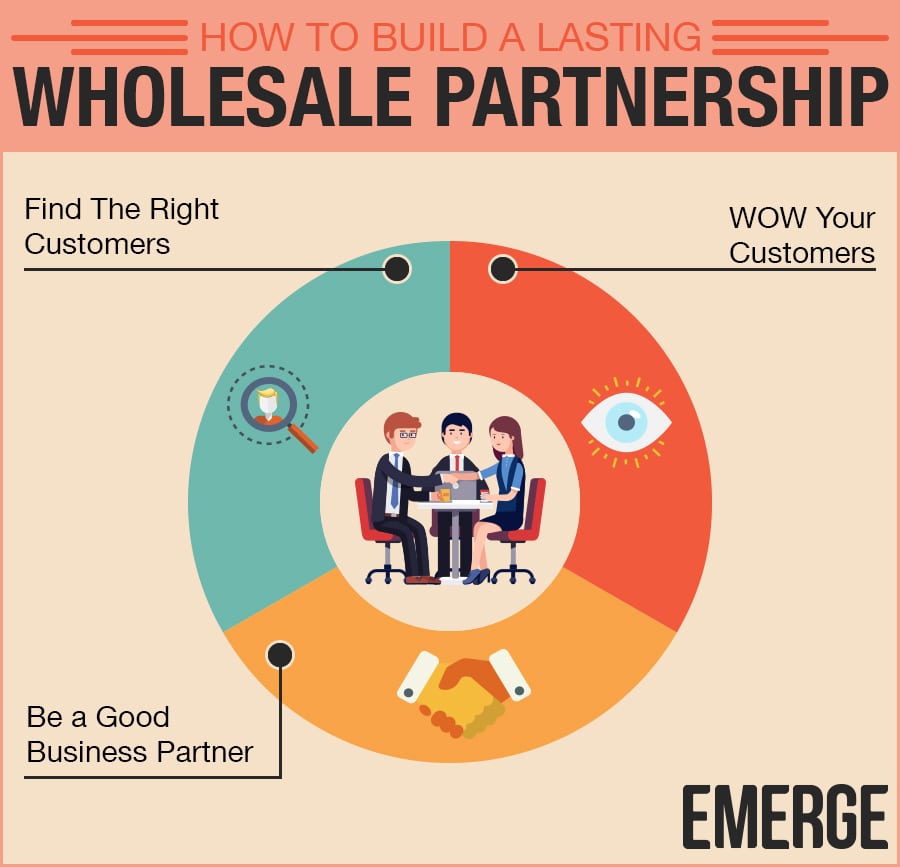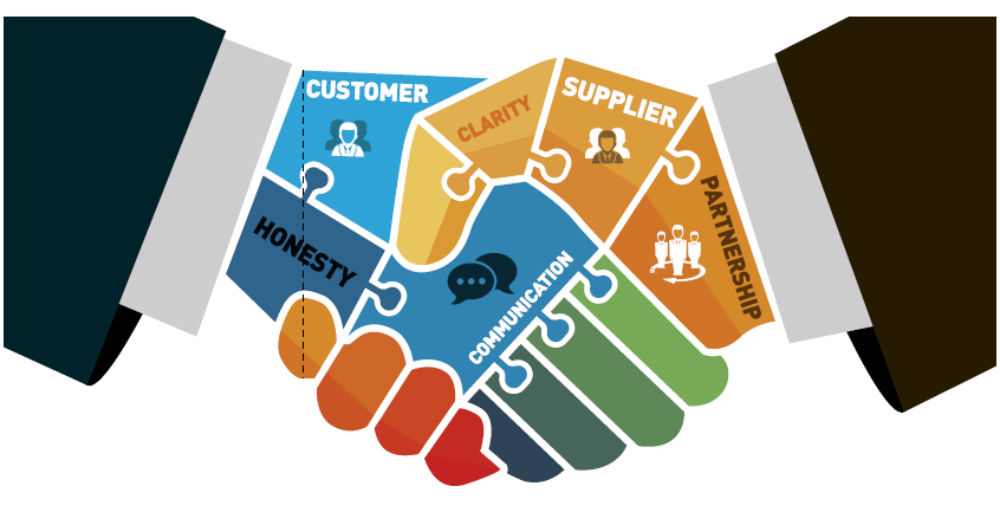The Power Of Partnership: Understanding The Wholesaler-Reseller Relationship
The Power of Partnership: Understanding the Wholesaler-Reseller Relationship
Related Articles: The Power of Partnership: Understanding the Wholesaler-Reseller Relationship
Introduction
With great pleasure, we will explore the intriguing topic related to The Power of Partnership: Understanding the Wholesaler-Reseller Relationship. Let’s weave interesting information and offer fresh perspectives to the readers.
Table of Content
The Power of Partnership: Understanding the Wholesaler-Reseller Relationship

The world of commerce is built upon intricate networks of collaboration. One such crucial partnership is the relationship between wholesalers and resellers. This dynamic duo plays a significant role in bringing products to consumers, fostering economic growth, and driving innovation. This article delves into the intricacies of this relationship, highlighting the benefits for both parties and providing valuable insights for those seeking to enter or expand their involvement in this lucrative market.
The Wholesaler’s Role: A Foundation for Commerce
Wholesalers act as the bridge between manufacturers and retailers. They purchase goods in bulk directly from manufacturers, offering economies of scale and streamlined distribution channels. This process allows wholesalers to offer competitive pricing to resellers, enabling them to offer attractive prices to their end customers.
Here’s a breakdown of the key roles wholesalers play:
- Procurement: Wholesalers source products from manufacturers, ensuring a consistent supply of goods.
- Storage and Distribution: Wholesalers maintain warehouses to store large quantities of products, efficiently distributing them to resellers.
- Inventory Management: Wholesalers manage inventory levels, minimizing stockouts and ensuring timely deliveries.
- Pricing and Packaging: Wholesalers negotiate pricing with manufacturers and package goods for easier resale.
- Marketing and Sales: Some wholesalers offer marketing support and sales training to their reseller partners.
The Reseller’s Role: Bringing Products to the Market
Resellers are the crucial link between wholesalers and end consumers. They purchase products from wholesalers and sell them through various channels, including online marketplaces, physical stores, and direct-to-consumer sales. Resellers leverage their expertise in marketing, customer service, and local market knowledge to create a successful business.
Here’s a closer look at the reseller’s responsibilities:
- Product Selection: Resellers choose products based on market demand, target audience, and their own business strategy.
- Pricing and Marketing: Resellers determine pricing strategies, develop marketing campaigns, and manage online and offline sales channels.
- Customer Service: Resellers provide customer support, handle inquiries, and manage returns.
- Shipping and Fulfillment: Resellers handle order fulfillment, packaging, and shipping of products to customers.
Mutual Benefits: A Symbiotic Relationship
The wholesaler-reseller relationship is a symbiotic one, where both parties benefit significantly from the partnership.
Benefits for Wholesalers:
- Expanded Market Reach: Wholesalers gain access to a wider customer base through reseller networks.
- Increased Sales Volume: Resellers drive higher sales volume for wholesalers, leading to increased profits.
- Reduced Sales and Marketing Costs: Resellers take on the responsibility for marketing and sales, allowing wholesalers to focus on core operations.
- Improved Inventory Turnover: Resellers help wholesalers manage inventory levels effectively, reducing storage costs and minimizing waste.
Benefits for Resellers:
- Access to a Wide Range of Products: Resellers gain access to a diverse selection of products at competitive prices.
- Reduced Startup Costs: Resellers avoid the high costs associated with manufacturing and sourcing products directly.
- Simplified Logistics: Wholesalers handle logistics, freeing resellers to focus on sales and marketing.
- Established Supply Chains: Resellers benefit from wholesalers’ established relationships with manufacturers and reliable supply chains.
The Importance of Finding the Right Partner
Building a successful wholesaler-reseller relationship requires careful consideration and strategic planning.
Factors to Consider When Choosing a Wholesaler:
- Product Selection: Ensure the wholesaler offers products that align with your target market and business goals.
- Pricing and Terms: Evaluate the wholesaler’s pricing structure, payment terms, and minimum order requirements.
- Customer Service and Support: Consider the wholesaler’s reputation for customer service, responsiveness, and technical support.
- Logistics and Shipping: Assess the wholesaler’s logistics capabilities, shipping times, and delivery options.
- Financial Stability: Verify the wholesaler’s financial stability and track record.
Factors to Consider When Choosing a Reseller:
- Target Market: Ensure the reseller’s target market aligns with your product offerings.
- Sales Channels: Evaluate the reseller’s sales channels and their ability to reach your target audience.
- Marketing and Promotion: Assess the reseller’s marketing strategies and their ability to promote your products effectively.
- Customer Service: Consider the reseller’s reputation for customer service and their ability to handle inquiries and complaints.
- Financial Stability: Evaluate the reseller’s financial stability and their ability to fulfill orders and make timely payments.
FAQs by Wholesalers Looking for Resellers
1. What are the key qualities to look for in a successful reseller?
- Strong Market Knowledge: Resellers should possess a deep understanding of their target market, customer preferences, and industry trends.
- Proven Sales Track Record: A history of successful sales and a strong customer base is crucial.
- Effective Marketing Strategies: Resellers should have a proven ability to reach their target audience through effective marketing campaigns.
- Excellent Customer Service: Providing exceptional customer service is essential for building brand loyalty and positive reviews.
- Financial Stability: Resellers should demonstrate financial stability and the ability to fulfill orders and make timely payments.
2. How can wholesalers effectively identify and attract potential resellers?
- Online Marketplaces: Utilize online marketplaces dedicated to wholesale and reseller connections.
- Industry Events and Trade Shows: Attend industry events and trade shows to network with potential resellers.
- Social Media Marketing: Utilize social media platforms to reach a wider audience and connect with potential resellers.
- Content Marketing: Create valuable content, such as blog posts, articles, and videos, to attract and educate potential resellers.
- Referral Programs: Offer incentives to existing resellers for referring new partners.
3. What strategies can wholesalers use to build strong relationships with resellers?
- Clear Communication: Maintain open and frequent communication with resellers, addressing concerns and providing updates.
- Competitive Pricing and Terms: Offer competitive pricing and flexible payment terms to incentivize resellers.
- Marketing and Sales Support: Provide marketing materials, sales training, and other resources to support reseller efforts.
- Dedicated Account Managers: Assign dedicated account managers to provide personalized support and build strong relationships.
- Loyalty Programs and Incentives: Offer loyalty programs and incentives to reward reseller performance and encourage long-term partnerships.
Tips by Wholesalers Looking for Resellers
- Define Your Ideal Reseller Profile: Clearly define the characteristics and qualifications you seek in a reseller.
- Develop a Strong Value Proposition: Clearly communicate the benefits of partnering with your company.
- Offer Competitive Pricing and Terms: Ensure your pricing and terms are attractive to potential resellers.
- Provide Excellent Customer Service: Build strong relationships through exceptional customer service and support.
- Utilize Technology to Streamline Operations: Implement technology solutions to automate processes and improve efficiency.
Conclusion by Wholesalers Looking for Resellers
The wholesaler-reseller relationship is a vital partnership that drives economic growth and brings products to consumers. By understanding the roles, benefits, and key considerations involved, both wholesalers and resellers can build successful collaborations that drive mutual growth and success. As the business landscape continues to evolve, the importance of these partnerships will only grow, creating opportunities for innovative businesses to thrive in the dynamic world of commerce.








Closure
Thus, we hope this article has provided valuable insights into The Power of Partnership: Understanding the Wholesaler-Reseller Relationship. We thank you for taking the time to read this article. See you in our next article!
You may also like
Recent Posts
- The Enduring Appeal Of XP Jewelry: A Timeless Symbol Of Achievement
- A Global Tapestry Of Adornment: Exploring World Collections Of Jewelry
- The Evolution Of A Brand: Understanding The Name Change Of Lola Rose Jewellery
- Navigating The UK’s Jewelry Wholesale Landscape: A Comprehensive Guide
- The Allure Of Effy Jewelry: Unveiling The Reasons Behind Its Premium Pricing
- The Enduring Appeal Of Gold Jewelry: A Timeless Investment
- The Art Of Harmony: Elevating Your Style Through Accessory Coordination
- The Comprehensive Guide To Wholesale Jewelry Supplies Catalogs: A Treasure Trove For Jewelry Makers And Businesses
Leave a Reply